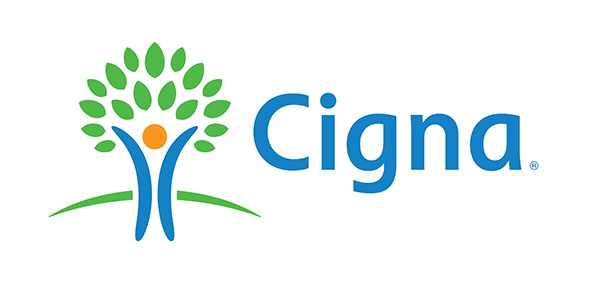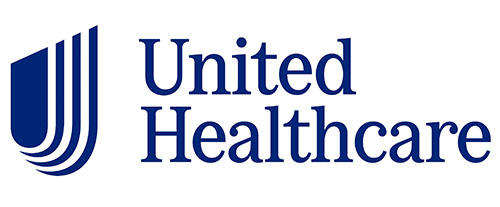Whether you need to choose a private health insurance company, or if your employer has given you some options, selecting the best health insurance can be difficult. We’ve taken a look at what the top US health insurance companies have to offer to help give you an assessment of what is the right one for you.
When you have been diagnosed with an illness, you want your insurance company to provide the sort of care that will make your treatment less stressful. But, of course, there isn’t a perfect insurance company, and all of them have their pros and cons.
When choosing your health insurance plan, you need to consider what you want and need, but the costs are also something that you can’t ignore. Read our health insurance company reviews 2022, to help you choose.
Contents
UnitedHealthcare
UnitedHealthcare provides access to a full range of health benefit programs. So if you are an individual, an employee, or benefit from Medicare or Medicaid, it should have something to meet your requirements. They directly contract with over 1.3 million doctors and other healthcare professionals, as well as 6,500 hospitals and other healthcare facilities.
Many of the plans they offer have added benefits, like free primary care or lower-cost prescriptions. You can also add in other coverage as necessary, like dental or vision.
The provider also pushes a consumer-driven digital care approach. This includes wearable healthcare technology for diabetes sufferers and activity trackers.
Pros
- Access to a large proprietary network of healthcare professionals
- Wellness support programs
- Extensive online options to manage appointments and claims
Cons
- Not as competitively priced as other providers
- Wellness support programs may not be available to everyone
- Not the best customer ratings
Kaiser Permanente
Rated as the top healthcare insurance in a number of states, Kaiser Permanente’s private and Medicare Advantage programs are almost entirely HMOs. HMOs typically offer lower premiums without deductibles, and copays are generally lower as well. If you are on a budget, this will be very important.
The big downside with an HMO is the requirement to only use healthcare professionals and facilities that are part of their network. This is, of course, with the exception of emergencies where you will need to visit your nearest facility.
Pros
- Highly rated by customers
- Lower premiums
Cons
- Not available nationwide
- A limited network of providers
Aetna
One of the larger health insurance providers in the United States, Aetna offers employer health plans nationwide. In 2018 they were purchased by CVS, and consequently, some of their plans offer a 20% discount at CVS pharmacies.
While they do not offer private insurance plans, Medicare, Medicaid, student, and employer coverage are provided. You can choose between different plan types like HMO and PPO, as well as many more. On top of this, they offer programs to improve health, including gym memberships and health coaching.
Pros
- Coverage in all 50 states
- Wellness programs
- Pharmacy discounts
Cons
- Only slightly above average ratings from customers
- No private health plans
BlueCross BlueShield
Also operating nationwide and providing a large network of healthcare professionals, BlueCross BlueShield offers a wide range of plan options. Whether you want an HMO, an EPO, or a PPO, you can ensure the right level of coverage for your requirements.
BlueCross BlueShield is a large organization that operates 35 independent health insurance companies in the United States. Together these businesses provide insurance for over 110 million Americans.
Pros
- More than 1.7 million doctors in their network
- You shouldn’t have difficulty finding a provider in your state
- Many options to create the health care plan that best suits you
Cons
- The different independent companies may have different policies
- Some of the BlueCross BlueShield companies have a rating of less than 3.5
- Moving to a new state will probably mean moving to a new company
Cigna
The global healthcare company Cigna has more than 17 million customers worldwide. These customers can access healthcare through their global network of 1.5 million healthcare professionals in over 30 countries.
However, in the United States, their insurance plans are only available in 13 states. Though, their customers are able to access healthcare from professionals not within their network without requiring approval first.
 The options for their health care plans vary depending on the state you live in. But their plans received high satisfaction marks in some states in 2021, an improvement over the bad customer service marks received in 2020.
The options for their health care plans vary depending on the state you live in. But their plans received high satisfaction marks in some states in 2021, an improvement over the bad customer service marks received in 2020.
They are also partnered with the largest pharmacy benefit manager, Express Scripts, which should reduce prescription costs.
Pros
- 67,000 partner pharmacies
- A large global network of healthcare providers
- Member benefits, including home delivery
Cons
- Only available in 13 states
- Telehealth is not offered for all plans
Which Health Insurance Company is Right for Me?
While there are many different insurance companies to choose from, not all of them will be available where you live. Even when you think you have found the right company, they will have different plans and options to choose between. Due to everyone’s individual situation, there is no single right answer as to which is the best insurance company for you.
 Before you make your choice, you need to understand what your priorities are. How important is cost, are you close to health care providers within the company’s network, and does it offer the level of care you anticipate requiring? These are just a few of the questions you need to ask yourself before choosing.
Before you make your choice, you need to understand what your priorities are. How important is cost, are you close to health care providers within the company’s network, and does it offer the level of care you anticipate requiring? These are just a few of the questions you need to ask yourself before choosing.
If you are shopping for private healthcare coverage, deciding on whether HMO or PPO is right for you is another decision you’ll need to make. You also need to consider additional coverage like dental or vision, and whether paying extra for these is what you want.
Let’s look at a few more things you need to consider before deciding on your health insurance.
What Level of Cover is Available from the Insurance Plan?
Not only will there be quite large differences between health insurance companies, but they’ll also be large differences between the plans that individual company provides.
Different plans will offer different options and levels of cover, but there are certain minimums required because of the Affordable Care Act. These mandatory coverage requirements include things like prescription drug coverage, pregnancy and childbirth, emergency care, mental health coverage, and other essential health benefits.
The exact details of what is considered mandatory are down to the state. However, large employees don’t have to follow these exact same requirements, although they often do anyway. So when you are going to be enrolled in a new employer’s health plan, you want to be sure about what the exact details are so you are clear on what is covered.
How Much is My Health Insurance Going to Cost?
Before you settle on a health insurance plan, you need to be sure you’ll be able to afford the premiums. The amount you’ll have to pay in insurance premiums will be based on your individual circumstances and the cover you need.
Things like your age and your lifestyle could factor into the cost you end up paying. For example, if your lifestyle includes smoking cigarettes, you can expect to pay perhaps as much as 50% more in health insurance premiums. The level of coverage you require is also a big factor, as well as whether you need to cover your entire family or if it is just for you as an individual.
There are also other considerations like the difference between the insurance you purchase and employer-sponsored schemes. You might also qualify for a tax credit on your health insurance plan premiums depending on your income.
Based on figures from 2020, average healthcare spending was $12,530 per person in the United States. Included in this are average healthcare premiums of around $7,500 per year for individuals or nearly $21,500 for a family. While the pandemic may have had some effect on healthcare prices, things are returning to normal with modest yearly increases.
Do I Really Need Health Insurance?
The Affordable Care Act included a mandate requiring a certain minimum coverage. Also included in the act was the requirement to pay a penalty fee should you be able to afford health insurance but not purchase it. If you or anyone else in your household did not meet the minimum healthcare requirements, you would be charged a fee when taxes were due each year.
The penalty fee was removed by the federal government in 2019. So now if you choose to not purchase minimum coverage, you might not have to worry about the penalty fee.
Despite the fact that this is been removed federally, some states still have insurance coverage requirements. So before you make the choice to not get health insurance, you’ll need to know if your state is going to charge any penalty fees.
Conclusion
Hopefully, these healthcare reviews 2022 will help you shed some light on which health insurance plan is right for your situation. There are a lot of factors to consider before you choose which option is right for you, and your individual requirements should be clear in your mind.








